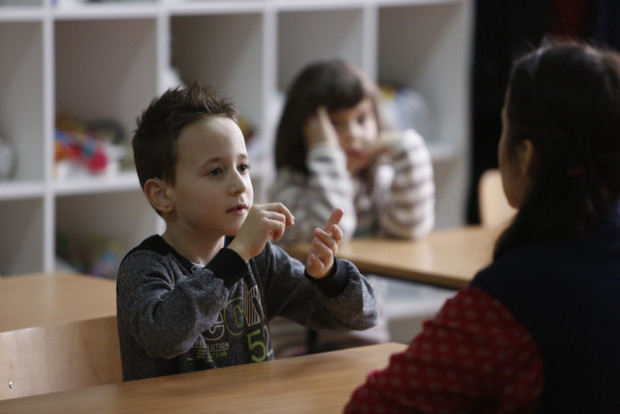Μια ολόκληρη τάξη μαθητών δημοτικού έμαθε τη νοηματική γλώσσα για χατήρι ενός συμμαθητή τους
18 Φεβρουαρίου 2016
Μερικά υπέροχα παιδιά και μια δασκάλα στο Σεράγεβο αποφάσισαν πως δεν θα άφηναν τον 6χρονο Zejd στην απομόνωση
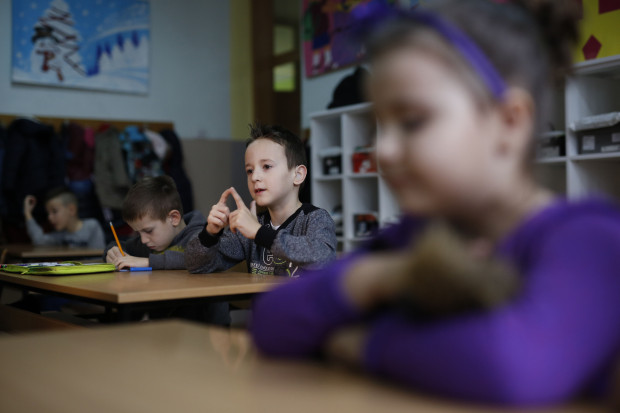
In this photo taken Thursday, Feb. 4, 2016, Bosnian boy Zejd Coralic, center, participates in a class with other children at an elementary school in Sarajevo, Bosnia. In 2003, Bosnia adopted laws that allow children with disabilities to be fully integrated into society, including schools. Children with special needs are supposed to have professional assistants who sit with them in class, translating or otherwise helping them participate. But in practice, impoverished Bosnia barely has enough money to keep normal schools functioning and children with disabilities are left to the care and imagination of their parents and the good will of school staff. (AP Photo/Amel Emric)
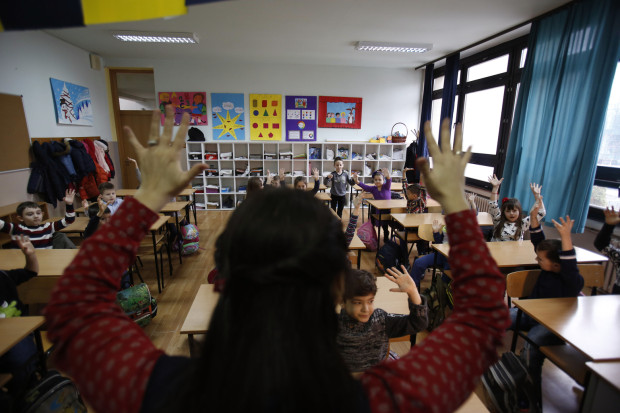
In this photo taken Thursday, Feb. 4, 2016, Bosnian Anisa Setkic-Sendic, a sign language teacher, explains sign language to children at an elementary school in Sarajevo, Bosnia. In 2003, Bosnia adopted laws that allow children with disabilities to be fully integrated into society, including schools. Children with special needs are supposed to have professional assistants who sit with them in class, translating or otherwise helping them participate. But in practice, impoverished Bosnia barely has enough money to keep normal schools functioning and children with disabilities are left to the care and imagination of their parents and the good will of school staff. (AP Photo/Amel Emric)
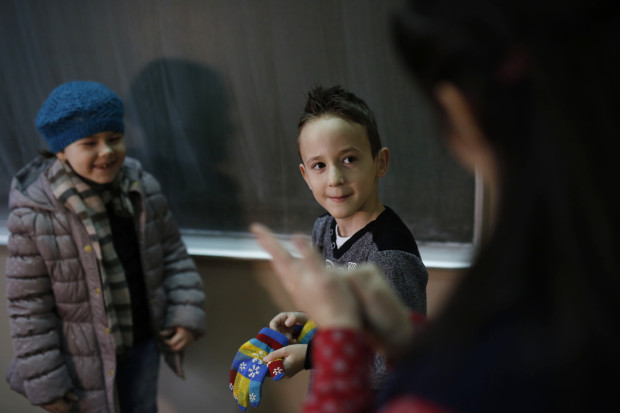
In this photo taken Thursday, Feb. 4, 2016, Bosnian boy Zejd Coralic, center, learns sign language from teacher Anisa Setkic-Sendic, right, in a class at an elementary school in Sarajevo, Bosnia. In 2003, Bosnia adopted laws that allow children with disabilities to be fully integrated into society, including schools. Children with special needs are supposed to have professional assistants who sit with them in class, translating or otherwise helping them participate. But in practice, impoverished Bosnia barely has enough money to keep normal schools functioning and children with disabilities are left to the care and imagination of their parents and the good will of school staff. (AP Photo/Amel Emric)
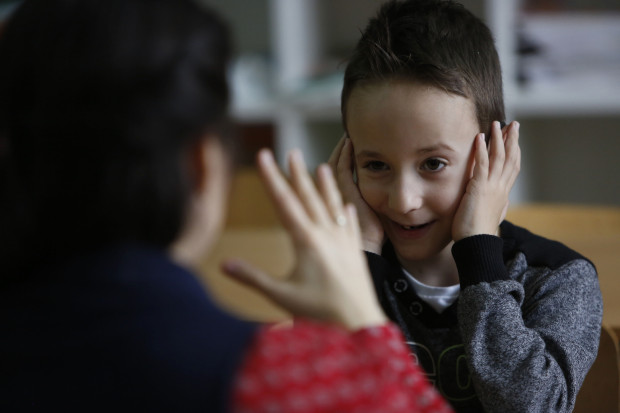
In this photo taken Thursday, Feb. 4, 2016, Bosnian boy Zejd Coralic, right, learns sign language from teacher Anisa Setkic-Sendic in a class at an elementary school in Sarajevo, Bosnia. In 2003, Bosnia adopted laws that allow children with disabilities to be fully integrated into society, including schools. Children with special needs are supposed to have professional assistants who sit with them in class, translating or otherwise helping them participate. But in practice, impoverished Bosnia barely has enough money to keep normal schools functioning and children with disabilities are left to the care and imagination of their parents and the good will of school staff. (AP Photo/Amel Emric)
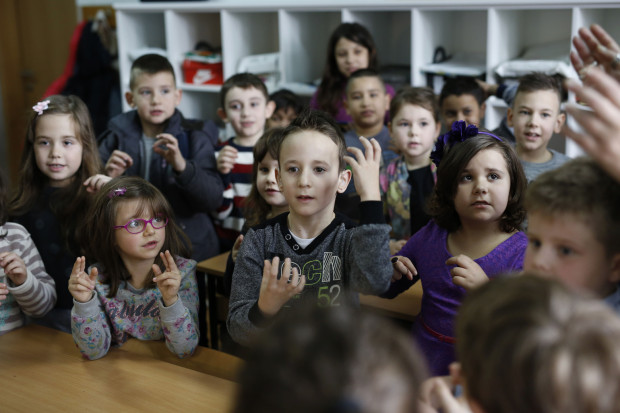
In this photo taken Thursday, Feb. 4, 2016, Bosnian boy Zejd Coralic, center, learns sign language from teacher Anisa Setkic-Sendic, not shown, with other children in a class at an elementary school in Sarajevo, Bosnia. In 2003, Bosnia adopted laws that allow children with disabilities to be fully integrated into society, including schools. Children with special needs are supposed to have professional assistants who sit with them in class, translating or otherwise helping them participate. But in practice, impoverished Bosnia barely has enough money to keep normal schools functioning and children with disabilities are left to the care and imagination of their parents and the good will of school staff. (AP Photo/Amel Emric)


